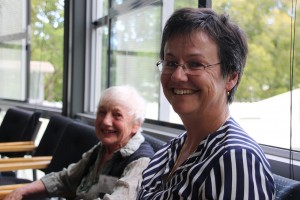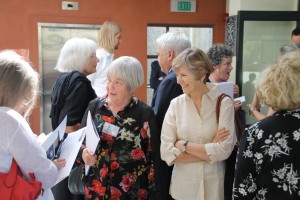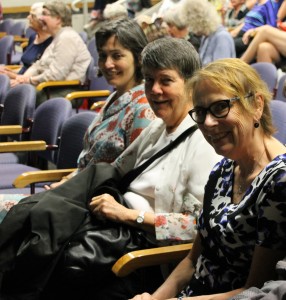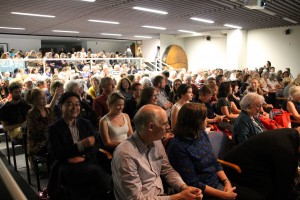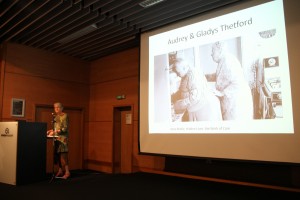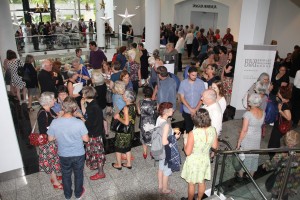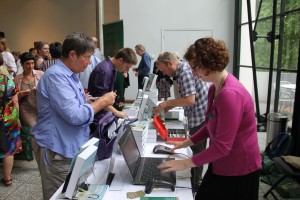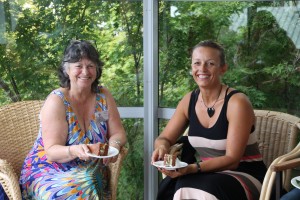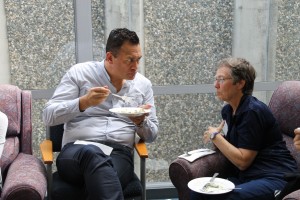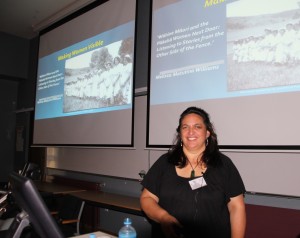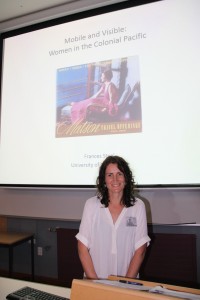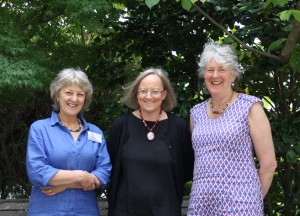CfP. Encounters and Exchanges: Exploring the History of Science, Technology and Mātauranga (Indigenous Knowledge)
Our Centre is supporting this forthcoming conference linked to the Tuia 250 commemoration activities taking place across the country this year. Please consider submitting an abstract. Submission deadline is 8 May.
Call for Papers: Encounters and Exchanges
The University of Otago and the Tōtaranui 250 Trust announce a conference to take place in Blenheim, New Zealand from 1-3 December 2019 that will explore the global history of science, technology, medicine, and mātauranga (indigenous knowledge). The conference will be part of a sequence of national events in New Zealand titled Tuia – Encounters 250 Commemoration. These mark the 250th anniversary of James Cook’s first Pacific voyage and the first onshore meetings between Europeans and Māori.
The conference is especially interested in analysing the implications for the global history of science, technology, medicine, and indigenous knowledge. The two major themes central to the Tuia – Encounters 250 Commemoration, ‘dual heritage-shared future’ and the importance of voyaging, pose a range of questions about knowledge, how it is generated, how it is communicated and translated, and how it is entangled with power. The emphasis on the important role of voyaging is consistent with a recent emphasis in the academic field of the history of science on ‘knowledge in transit’ or how science, technology, and indigenous knowledge – involving people, instruments, tools, communications, values, and epistemology – travel from one region to another and are transformed, reworked or contested. We welcome papers or panels that explore these kinds of questions, either within the specific contexts of the southern Pacific in the 1760s and 1770s, or in any other context where encounters and exchanges were integral to knowledge making.
Building on the ‘dual heritage-shared future’ theme of the Tuia – Encounters 250 Commemoration, conference participants will explore recent efforts to analyse reciprocal relationships, the places where exchanges, negotiations, trade, and transactions have taken place, and the important role of mediators or go-betweens in the history of science, technology and indigenous knowledge. Participants will be encouraged to discuss the value of models for interactions that emphasise such concepts as ‘cultural borderlands’, ‘contact zones’, and ‘trading zones’. The conference will be especially interested in exploring the complex role of indigenous people in the history of science. Recent scholarship has emphasised that local people in all parts of the world not only gathered information but also helped categorize and conceptualize the information. Distinctions between amateurs and professionals as well as producers and users are no longer sharply conceived. As a contribution to the recent emphasis on exploring history of science in a global context, the conference will encourage research covering all parts of the world. The organisers plan to publish selected papers in an edited volume on the global history of science, technology, medicine, and indigenous knowledge.
The conference will include keynotes from leading scholars as well as a programme of special public events in the evenings. Notable participants include Naomi Oreskes, Professor of the History of Science at Harvard University; Jane Lydon, Wesfarmers Chair in Australian History at the University of Western Australia; Peter Moore, author of Endeavour: The Ship and the Attitude that Changed the World (2018 book of the year by the Sunday Times); New Zealand filmmaker Lala Rolls, who will present her feature-length documentary film Tupaia’s Endeavour; Damon Salesa, Pro-Vice-Chancellor, Pacific at the University of Auckland; Matariki Williams, Curator Mātauranga Māori, Museum of New Zealand Te Papa Tongarewa; and critic and former Poet Laureate of New Zealand, Ian Wedde.
This gathering will be held in Blenheim, a small city with a rich cultural heritage and which is surrounded by vineyards and stunning scenery. It will be distinguished by the integral role of local iwi (tribal communities), and participants will have the opportunity to learn about and engage with the knowledge traditions and historical experiences of the tangata whenua (people of the land). This is particularly important as the conference will be a forum for a range of vantage points on how knowledge is created and shared and it will enable genuine and critical reflection on the often painful and contested legacy of Cook’s voyages and the histories of empire and colonization that followed.
To submit a proposal, see the instructions on the conference website
The deadline for proposals is 8 May.
To express an interest in the event or to ask a question, please contact: encounters-exchanges@otago.ac.nz
Travel grants will be available for postgraduate students at New Zealand universities and early-career scholars in New Zealand. If you are interested in one of these travel grants, send an expression of interest to the conference email address as soon as possible: encounters-exchanges@otago.ac.nz. More details will be available later about the formal application process.
CFP: Exclusion, Confinement, Dispossession
CFP: Nga Taonga Tuku Iho 2018
The 2018 National Conference of the Archives and Records Association of New Zealand will take place from 25-28 August at Rotorua.
The theme of the conference is Māori archives and records. This theme and kaupapa allows for an exploration of the discovery, preservation, description, record keeping, interconnectedness and meaning of Māori records, archives and taonga. The 2018 conference looks to explore opportunities for researchers, communities and organisations to collaborate in the guardianship of knowledge, facilitate researcher engagement and help safeguard our collective past in perpetuity.
Areas of focus, and possible topics, could include:
- Iwi and community archives
- Conservation and preservation of collections
- Preventing and managing disasters
- Documenting heritage collections and taonga
- Collection descriptions for indigenous designed databases
- Record-keeping standards and authority headings
- Digitising collections
- Cultural sensitivities and archival ethics
- Research into Māori collections and archives
- Displacement of collections and repatriation
- Collecting archives in a post-Treaty environment
- Resourcing and funding challenges
- Ownership and kaitiakitanga
- Te Reo as part of the record
- Distributed collecting across institutions and iwi archives
- Connecting communities through records and archives
Proposals for 20 minute papers are invited. Abstracts of 450-500 words and a short bio should be submitted via email to Tiena Jordan (threejordans@xtra.co.nz) by the 31st March 2018.
New Historians Conference
Call for papers: The history postgraduate students at Victoria University of Wellington, Te Whare Wānanga o te Ūpoko o te Ika a Māui, warmly invite you to the 2016 New Historians Conference, to be held on Monday 17 and Tuesday 18 October.
First established in 2006 by Professor Melanie Nolan and postgraduate students, the conference attracts MA and PhD candidates and others who have recently completed their research.
It is an excellent opportunity to discuss current work and to share ideas.
Expressions of interest and 200 word abstracts are due 1 September.
Registrations are due by 15 September.
Keynote speakers will be confirmed shortly. Registration costs $25, to be paid on arrival at the conference. There will be an optional conference dinner on Monday night, costing $28-$35 per person.
Further details are available at: www.victoria.ac.nz/hppi/about/events
Please follow the event via Twitter: @HistoryatVic and use the hashtag #NewHist16.
NZ Women’s Studies Association Conference 2016
Call for Papers for the Women’s Studies Association Conference (WSANZ) 2016
“Re/generation: New Landscapes in Feminism and Women’s Studies”.
2nd-3rd September at the Owen Glenn Building, The University of Auckland, Main Campus.
Please note that the deadline to submit an abstract is 30 June 2016.
The Conference keynote themes and speakers include:
- Conference Inauguration: Prof. Ngahuia Te Awekotuku (University of Waikato)
- Inaugural Margot Roth Lecture : Prof Priya Kurian (The University of Waikato)
- Panel on New Directions in Justice: Prof. Rosemary Hunter (Queen Mary University, London), A/P Elisabeth McDonald (Victoria University, Wellington) & A/P Tracey McIntosh (University of Auckland)
- Panel on Gender, Generation and Care : Prof. Ngaire Kerse (School of Population Health, University of Auckland); Dr Katherine Ravenswood (AUT), Dr Tess Moeke-Maxwell (University of Auckland)
Proposals in the following categories are welcomed: (a) 20 minute paper presentations (b) One hour panels (c) Soapbox sessions: (for undergrads and high school students; 3-5 minutes on a relevant theme) (d) Posters and (e) Performances (poetry, art).
Limited scholarships available for undergrads and high school students.
Apply by JUNE 30th !!!! (100 words on why you want to come PLUS name of a teacher or lecturer for reference)
For more details, see http://www.wsanz.org.nz/events.htm
Space, Race, Bodies II: Sovereignty and Migration in a Carceral Age
Our colleagues in Media Film and Communications at the University of Otago are sponsoring a conference on sovereignty and migration, which will take place in early May. The Call for Papers is below.
Space, Race, Bodies II: Sovereignty and Migration in a Carceral Age
University of Otago
May 6-8th, 2016
Featuring:
Fadak Alfayadh (RISE: Refugees, Survivors and Ex-Detainees)
Tracey Barnett (Independent Journalist)
Mengzhu Fu (Shakti Youth)
Associate Professor Stephanie Fryberg (University of Washington)
Tame Iti
Moana Jackson
Crystal McKinnon and Emma Russell (Flat Out)
Suzanne Menzies-Culling and Marie Laufiso (Tauiwi Solutions)
Professor Margaret Mutu (University of Auckland)
Emilie Rākete (No Pride in Prisons)
Annette Sykes
Teanau Tuiono
Space, Race, Bodies II: Sovereignty and Migration in a Carceral Age is an academic and activist conference featuring workshops that address the intersections of criminal justice movements around the incarceration of migrants and communities of colour and Indigenous sovereign movements. SRB II builds on the momentum and opportunities enabled by the first Space, Race, Bodies conference in publicising and disseminating scholarship and activism on the intersections between geography, racism and racialisation.
Presentations and panels are invited to address, but are not limited to, the following:
surveillance and imprisonment in settler colonial and imperial histories
detention and surveillance of migrants and refugees
racial profiling and state violence towards ethnic and marginalised communities
geographies of torture in the ‘war on terror’
the geopolitics of homonormativity and pinkwashing
hate crimes and the role of imprisonment as a key modality through which rights protections are secured
intersectionality and social and political forms of exclusion
community and activist challenges to state violence and detention
Indigenous sovereign protest movements
corporeality, race and biometrics
capitalism, race and incarceration
the prison industrial complex
digital forms of enclosure and surveillance
race, racialisation and geography
climate change, migration and asylum
protest camps and state surveillance
Please note that general submissions on the theme of space, race, and embodiment are welcome. We also invite workshops, creative performance and other community forms of participation.
For more information about the conference and the SRB collective, please visit our website: http://www.spaceracebodies.com.
Abstracts of 200w with an accompanying 50w bio can be sent to: Space.Race.Bodies@otago.ac.nz
We will accept abstracts on a rolling basis until April 1, 2016.
Colonial Formations Conference
CALL FOR PAPERS
Colonial Formations: Connections and Collisions
University of Wollongong 24–25 November 2016
Keynote speakers:
Professor Clare Anderson, University of Leicester
Professor Jane Lydon, University of Western Australia
Dr Alice Te Punga Somerville, Macquarie University
Dr Virginia Marshall, University of Wollongong
This conference will explore colonial formations from a range of historical, contemporary and interdisciplinary perspectives. In particular it seeks to foreground the local and regional particularities of colonial dynamics alongside those of the more studied arena of ‘imperial formations’. We seek to continue the work of decentring the metropole, as well as to shed light on its enduring power and purchase. The conference’s framing themes of ‘connections’ and ‘collisions’ encourages enquiry into processes of borrowing, negotiation and collaboration, as well as contestation, conflict and Indigenous resurgence and mobilisation.
The conference also serves to mark the recent formation of the Colonial and Settler Studies Network (CASS) at the University of Wollongong. CASS promotes critical inquiry into the history, theoretical framing, and contemporary manifestations of colonialism on a global scale. We particularly foster work that places colonial and settler colonial formations in comparative and connected frames, and promote collaboration between scholars of diverse colonialisms.
Paper proposals might consider the following themes: Indigenous and subaltern networks and exchanges; Settler colonialism and its relation to other colonial formations past and present; Colonial mobilities and movements across different colonial spaces; Collaborations/resistance/resurgence/cultural activism; Violence and violations; Citizenship and the production of difference; Biopolitics and colonialism/settler colonialism; Gender and sexualities; The politics of memory
We are calling for proposals for both individual papers (20mins) and panels of up to 3 speakers (90mins). Proposals should include a 250-word abstract and a 50-word biographical statement for each speaker. For panels, please also include a title and brief rationale for the panel as a whole. Please send proposals to cass-admin@uow.edu.au by 10 June 2016.
The conference will be preceded on 23 November 2016 by an interdisciplinary one-day masterclass for postgraduates and early career researchers — ‘Confronting Colonialism’. This will be led by Professors Clare Anderson and Jane Lydon, along with CASS members. Participants will be mentored to develop their conference papers for submission as journal articles. Some travel bursaries will be available. Places are limited. Interested postgraduates and early career researchers who are submitting a paper for the conference can request a masterclass application form by emailing cass-admin@uow.edu.au.
We anticipate that one or more journal special issues will develop from the conference proceedings.
Conference on New Zealand’s Scientific Heritage
CALL FOR PAPERS: FINDING NEW ZEALAND’S SCIENTIFIC HERITAGE
Venue: Victoria University of Wellington
Date: 23-24 November 2015
2015 is a significant year for New Zealand science history. It is 150 years since James Hector arrived in Wellington to set up many of our national science organisations and 100 years since Ernest Marsden arrived in Wellington.
In 1865 Hector was appointed head of the New Zealand Geological Survey, with his responsibilities eventually including the Colonial Museum, Colonial Observatory, Meteorological Service, Colonial Botanic Gardens, and the New Zealand Institute. In 1915, Marsden arrived in New Zealand to be professor of physics at Victoria University. He stayed in this position for seven years then, in 1926, was appointed head of New Zealand’s Department of Scientific and Industrial Research, a position he held until 1946.
In 1983, The Royal Society of New Zealand and the Alexander Turnbull Library ran a conference In Search of New Zealand’s Scientific Heritage. In the more than 30 years since this date there have been significant research and publications into New Zealand’s science history but there is still much to explore. The 2015 anniversaries invite a renewed focus on New Zealand’s science history and provide momentum leading up to the Royal Society of New Zealand’s 150th anniversary in 2017 and the 250th anniversary of the arrival of the first European scientists in 2019.
The conference committee invites proposals for individual papers, panels, and posters for Finding New Zealand’s Scientific Heritage, 23-24 November 2015. Proposals are due 30 June, 2015. Find out more about the conference, keynote speakers, and how to submit an abstract in the attached CFP.

